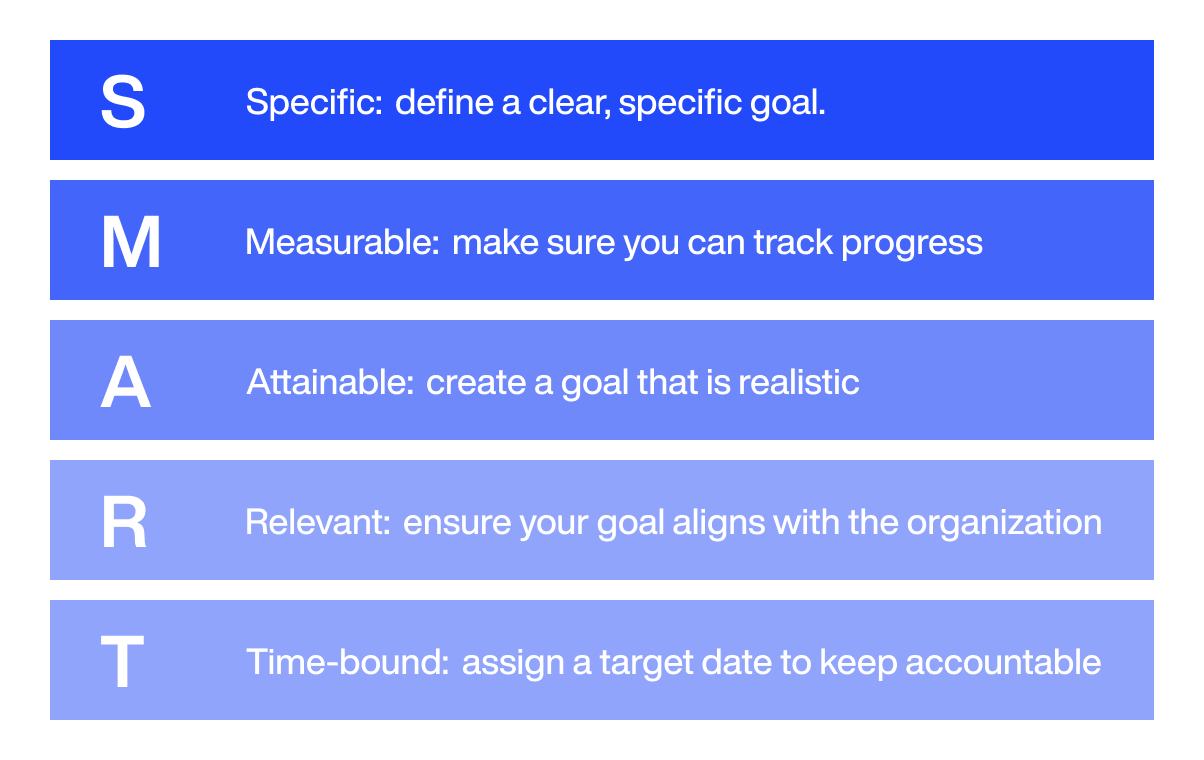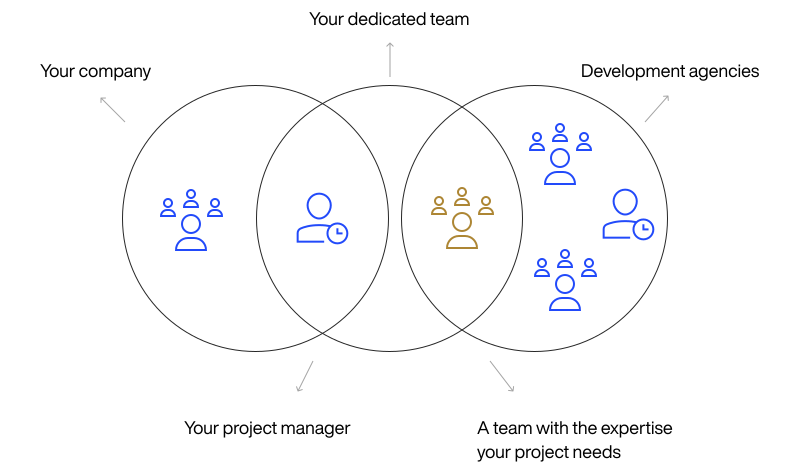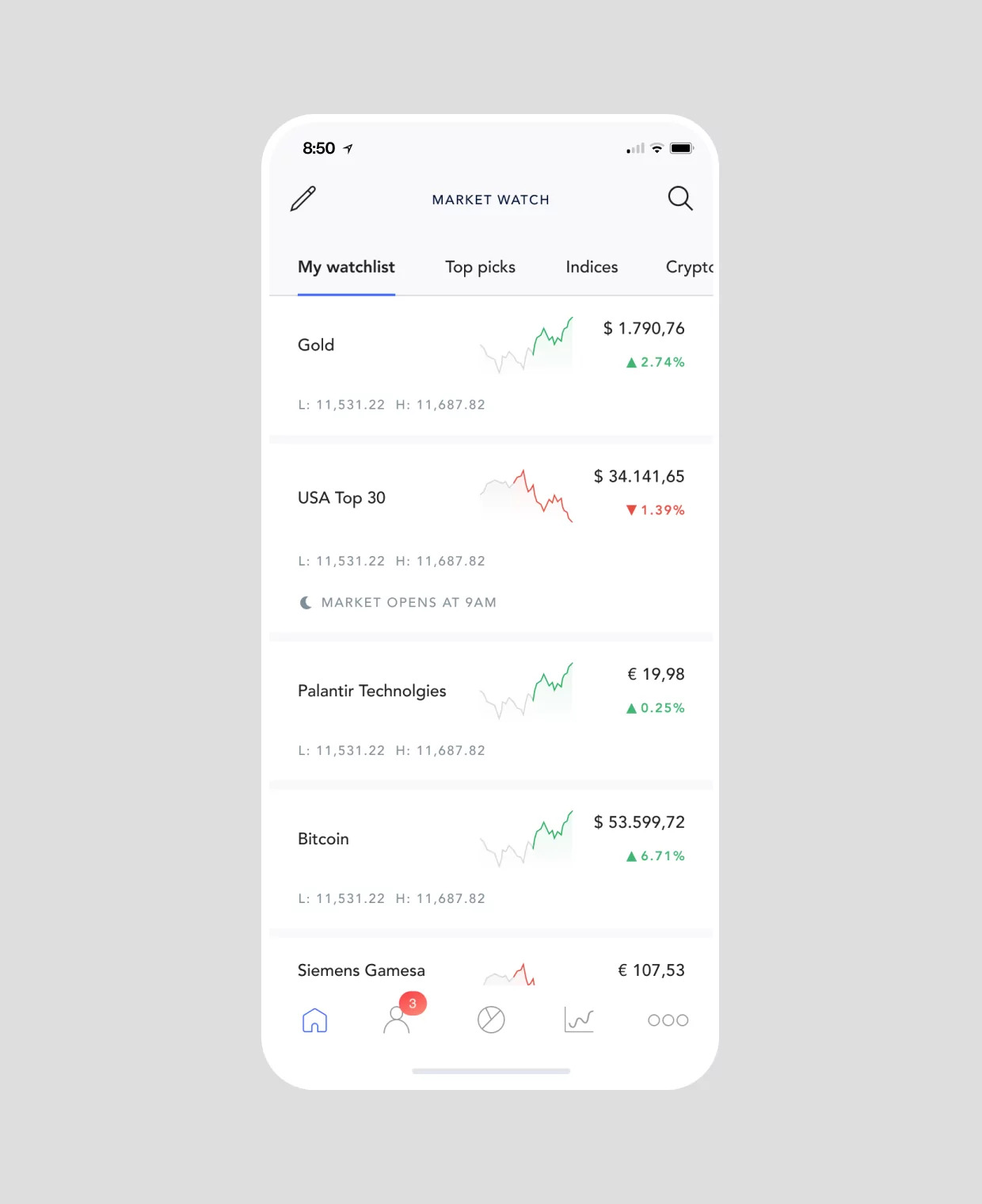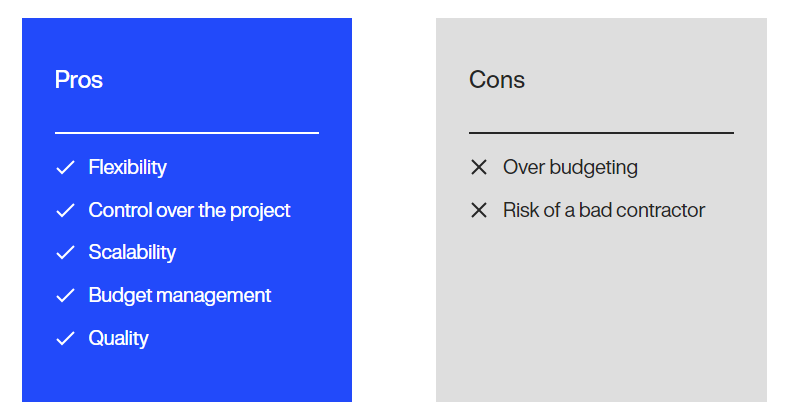Entering into software development presents a significant opportunity for your business.
However, it’s crucial to approach it strategically.
Choosing the ideal software development vendor is key to your success.
To assist you in making the best decision, we’ve crafted this comprehensive guide.
Let’s get started!
How to choose a software development vendor
Here, we’ll cover the steps you need to take when choosing a software development vendor.
Define your goals and requirements first
Before you start looking for a software development vendor, you first need to define your goals and requirements.
This means defining:
- Your long-term goals
- Your software product’s features
- The type of development team you need
If you don’t have clear goals and don’t know what you want to achieve with your product, even the best vendors will struggle to help you.
So, how can you do that?
The best place to start is setting clear goals.
You should use the SMART goals framework:

With it, you’ll make sure the goals you set are actually clear and realistic.
Once you’ve set your goals, you should think about your requirements next.
Of course, you won’t be writing a full software requirements specification (SRS) document.
But, you should be thinking about how you want your product to work and which features you want to include.
Keep in mind that you shouldn’t go overboard with features and functionalities – start by defining the core features you want in your minimum viable product (MVP).
There are a number of feature prioritization methods you can use to help you narrow down your feature list, like:
- Kano
- Value vs. effort
- RICE (Reach/Impact/Confidence/Effort)
- MoSCoW (Must have/Should have/Could have/Won’t have)
Finally, you need to decide what type of team you want to hire – a dedicated team or an extended team.
Hiring an extended team is a good choice if you’re looking to plug skill gaps in your in-house team or you need only 1 or 2 engineers.
But, a dedicated team is the better choice if you want to build a complex product and need a long-term development partner.

A dedicated team works just like an in-house team, except they’re hired by a third-party agency or service provider.
If you pick the right vendor, the dedicated team will care about your product as much as an in-house team.
And that’s exactly what you should be looking for.
Why it’s important
- Helps avoid misunderstandings – if you’re clear about your goals, you’ll avoid confusion and miscommunication when choosing a vendor
- Long-term planning – clear goals and well-defined requirements are key for your long-term strategy and planning
- Minimizes risks – clear goals and requirements will minimize the risk of hiring the wrong vendor
Review their portfolio and case studies
Reviewing a vendor’s portfolio and case studies should be your first step when evaluating a potential development partner.
It’s an absolutely essential step you can’t afford to skip.
That’s because their portfolio and case studies will tell you:
- The client problems they’ve solved
- Their previous work and experience
- How they approach their work
- The types of products they’ve built
- The tools and technologies they use
And this will show if they’re the right fit for your project or not.
Let’s imagine you want to build a fintech app.

A vendor will be the right fit if they have previous experience building similar products.
Also, keep in mind that case studies should be detailed and cover:
- The problem they’ve solved for their client
- How they solved it
- The impact their solution had
- Their team and tech stack
If they aren’t detailed enough, that’s a warning sign that they might not have that much experience.
And that should be a deal-breaker.
Why it’s important
- Proof of experience – reviewing a vendor’s portfolio and case studies will show you if they have experience with projects similar to yours
- Proof of industry expertise – if a vendor has experience in your industry, they’ll have a better understanding of your business needs and user expectations
- The quality of their work – Portfolios and case studies highlight the quality of a vendor’s work, so you can evaluate whether they align with your quality standards
Examine their tech stack
The tech stack they use is another important consideration you need to keep in mind when choosing a software development vendor.
It will show you if your tech stacks are compatible and if you can even work with them.
Let’s say you want to build an AI app.
In that case, a vendor’s tech stack should include:
- AI frameworks
- Database management systems (DBMS)
- AI cloud platforms
And more generally, a vendor’s tech stack should list their:
- Development tools
- Version control tools
- Testing tools
- Design tools
In many cases, you’ll be able to tell if a vendor can meet your requirements just by looking at the tools and technologies they use.
Also, their tech stack will affect your product’s performance and development speed, too.
And that’s why you should always review it before you commit.
Why it’s important
- Compatibility with your requirements – reviewing a vendor’s tech stack will show you if they the right tools and technologies to meet your specific needs
- Future scalability – the tech stack a vendor uses to build your product will affect its ability to scale, so ensuring that it can support future growth is essential
- Performance – the tech stack used to develop software affects its performance, so building it with the right one is crucial
Review their software development process
When looking at different software development vendors, you should always pick the vendor that aligns with your needs and goals.
And their development process is key to that.
So, what should you be paying attention to?
First, you need to check which types of software products they build, like:
- iOS apps
- Android apps
- Web apps
- AI apps
- Desktop apps
If you want a web app, a mobile-first vendor obviously won’t be the right choice.
Next, you should check if they offer other services than just software development, such as:
- Product discovery
- Quality assurance
- Product design
A vendor that offers full-service engineering is a better choice because you won’t have to hire any other vendors.
Also, make sure they use the right development methodologies.
Agile methodologies like Scrum or Kanban are the best choice for most projects today.

But why Agile?
Agile methodologies prioritize constant communication, collaboration, and quick iteration.
And that’s what you should be looking for in a vendor.
Why it’s important
- Transparency – if a vendor has a clear and well-defined development process, it helps build transparency and trust
- Communication – looking into a vendor’s development process will help you understand how they manage communication with their clients
- Efficiency and productivity – reviewing the vendor’s development process will show you how efficiently they work, which can affect your project’s timeline and cost
Look into their pricing
Before you make your final choice, the last thing you need to do is look into a vendor’s pricing.
It needs to fit your requirements and budget.
But, keep in mind that every project is unique and there’s no universal answer for how much development will cost you.
That’s because a number of factors influence the cost of your project, like:
- The type of product you’re building
- Your target platform
- Your product’s complexity
- Third-party integrations and services
- The services you agree with the vendor
But, there’s one factor you should pay close attention to – the pricing model they use.
The 2 most common are fixed price and time and materials.
Fixed price is a good choice if you have a simple project with well-defined requirements.
But, for more complex projects with requirements that might change during development, time and materials is a better option.
Here are the pros and cons of the time and materials model:

It’s the fairest compensation model for everyone involved, because it matches the actual hours and resources used to finish your project.
And that’s why it’s the best choice.
Why it’s important
- Helps with long-term financial planning – if you know how much development will cost you, you’ll be able to create a long-term financial plan and strategy
- Long-term partnership prospects – a company’s pricing will help you determine if they’re a good prospect for long-term partnership
- Helps you estimate ROI – knowing the cost of development will help you estimate how much you’ll get in return
Top questions to ask a software development vendor
Now, let’s discuss some top questions you should always ask a software development vendor and why they’re important.
- What projects have you worked on?
Asking this question will show you if a vendor is the right fit.
You’ll find out if they have the right skills, experience, and professionalism you need for your project.
- Which services do you offer?
A vendor’s services will show you if they can meet your requirements and if they’re a potential long-term partner.
- What development methodology do you use?
The development methodology a vendor uses directly shapes how they develop software and the quality of development.
Agile methodologies like Scrum and Kanban are the gold standard for modern software development.
- Do you offer post-launch support?
If a vendor offers post-launch support and maintenance, they can be your long-term partner.
- What is your pricing model?
The pricing model the vendor uses will determine how much development will cost you in the end.
- Do I have direct contact with the development team?
Direct communication with the team you’ve hired increases efficiency and gives you full control over the project.
Need a reliable software development vendor?
Software development isn’t easy.
And finding the right software development vendor is even harder.
That’s where we come in.
We can take your idea and help you build a stunning software product from the ground up.



